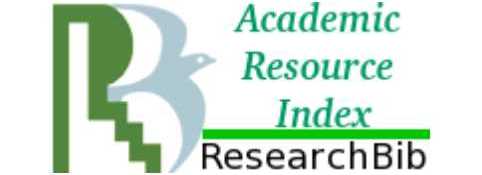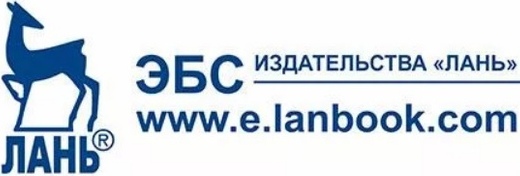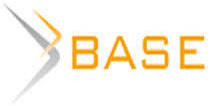THE DISTANCE EDUCATIONAL TECHNOLOGIES USING
The article presents the results of the analysis of the electronic information and educational environment of the ANO IN BUKEP as part of five segments. The purpose of the study is to study the electronic educational environment of an educational organization for the organization of the educational process in connection with the transition to a distance learning format. That is why close attention is paid to the segments of the electronic information and educational environment, examples of their practical use in the educational process implemented on the basis of distance technologies are given. The relevance of the use of electronic information resources of the ANO IN BUKEP as part of: electronic libraries, thematic training portals and other educational sites for the organization of the methodological process of students is considered. The practical examples of the use of segments of the electronic information and educational environment listed in the article ANO IN BUKEP are aimed at activating the educational activities of students on the basis of dialogical forms of interaction based on existing experience and personal qualities such as independence, communication, reflexivity; contribute to the acquisition of relevant socio-psychological and professional knowledge; the formation of personal and professionally significant qualities and skills, as well as their diagnosis and correction, allow the formation of professional and life skills of students, bring them to a high competence level.
Koptelova L.V., Dmitrieva Yu.V., Nechiporenko G.G. The distance educational technologies using // Research result. Information technologies. – Т.7, №4, 2022. – P. 41-49. DOI: 10.18413/2518-1092-2022-7-4-0-5
















While nobody left any comments to this publication.
You can be first.
1. Decree of the President of the Russian Federation dated May 7, 2018 No. 204 “On the national goals and strategic objectives of the development of the Russian Federation for the period up to 2024”, hereinafter – Decree No. 204
2. World Bank (2016a). Development of the digital economy in Russia. URL: http://www.vsemirnyjbank.org/ru/events/2016/12/20/developing-the-digital-economy-in-russia-international-seminar-1 (Accessed 11/17/2022).
3. Bukanova, A.A. The problem of organizing the involvement of schoolchildren in an active social life / A.A. Bukanova, S.M. Filyukov, V.I. Polnikov // Young scientist. – 2016. – No. 10. – P. 1181-1184.
4. Grigorieva, D.R. Application of information technologies in the social sphere / D.R. Grigorieva, A.S. Popchenko // Young scientist. 2015. – No. 11 (91). – P. 177-179.
5. Dmitrieva Yu.V. Modern methods of project management to identify the competitive advantages of IT companies / Yu.V. Dmitrieva, L.V. Koptelova // Bulletin of the Belgorod University of Cooperation, Economics and Law. - 2019. - No. 2 (75). – S. 334-343.
6. History of psychology: reader / Ministry of Culture of the Russian Federation, Kemerovo State University of Culture and Arts, Department of Pedagogy and Psychology; comp. ON. Bugrov. - Kemerovo: KemGUKI, 2014. – 207 p.
7. Catalog of professions. Atlas of new professions. – URL: https://atlas100.ru (accessed 11/27/2021). – Text: electronic.
8. Kashina E.A. Forecasting the structure of an integrated informatics course: dis. … cand. ped. Sciences // Yekaterinburg, 1997. – 187 p.
9. Kolos N.V. Mobility of innovative solutions in the field of information technology and e-commerce / N.V. Kolos, Yu.V. Kuzminov // Bulletin of the Belgorod University of Cooperation, Economics and Law. – 2016. – No. 1 (57). – P. 140-148.
10. Mavlyutova G.A. Digitalization in a modern higher educational institution // Scientific and Practical Journal. Economic security and quality. 2018. No. 3 (32). – P. 5-7.
11. Nikulina T.V. Informatization and digitalization of education: concepts, technologies, management / T.V. Nikulina, E.B. Starichenko // Pedagogical education in Russia. – 2018. – No. 8. – P. 107-113.
12. Osipova N.V. Modern tendencies of professional orientation to the professions of the future / N.V. Osipov // Vocational education and youth employment: XXI century. Training for the digital economy. – Collection of materials of the International Scientific and Practical Conference. – Kemerovo. – 2019. – P. 120-121
13. Decree of the Government of the Russian Federation of March 2, 2019 N 234 (as amended on August 21, 2020) “On the management system for the implementation of the national program “Digital Economy of the Russian Federation”. URL: http://www.pravo.gov.ru (accessed 11/01/2021). – Electronic text.
14. Prizhigalinskaya, T.N. Influence of infrastructural potential as a source of formation of sustainable competitive advantages on the choice of a university development model in the context of digitalization of the economy / T.N. Prizhigalinskaya, N.V. Shevtsova, G.G. Nechiporenko // Bulletin of the Belgorod University of Cooperation, Economics and Law. – 2021. – No. 1 (86). – P. 9-25.
15. Tarasova E.E., Prushkovskaya E.E., Efimova N.A. Theoretical and methodological aspects of developing a university marketing strategy for promoting educational services // Bulletin of the Belgorod University of Cooperation, Economics and Law. – 2019. – No. 4 (77). – P. 278-289.